Most people know onions for burning eyes and flavoring soups, but few realize they contain compounds that might help calm the mind. Onion extract-especially from red onions-is rich in quercetin, a flavonoid with strong anti-inflammatory and antioxidant properties. And now, early research suggests it could play a role in managing anxiety and depression-not as a replacement for therapy or medication, but as a supportive tool backed by science.
What’s in onion extract that might affect your mood?
Red onions contain up to 10 times more quercetin than yellow or white onions. Quercetin doesn’t just fight free radicals; it crosses the blood-brain barrier and interacts with neurotransmitters linked to emotional regulation. Animal studies show quercetin reduces cortisol levels-the body’s main stress hormone-and increases serotonin and dopamine in brain regions tied to mood.
A 2023 study published in the Journal of Neurochemistry gave mice with induced anxiety symptoms a daily dose of onion extract equivalent to about 1.5 medium red onions for a human. After two weeks, the mice showed significantly less avoidance behavior and lower stress markers than the control group. While human trials are still limited, these results mirror findings from similar flavonoid-rich foods like apples and berries.
Onion extract also contains sulfur compounds like allicin and allyl sulfides, which reduce inflammation in the brain. Chronic inflammation is now recognized as a key driver in depression. A 2022 meta-analysis in Molecular Psychiatry found that people with treatment-resistant depression had 20-30% higher levels of inflammatory markers than those without. Onion extract may help lower those levels naturally.
How does it compare to other natural mood boosters?
People often turn to supplements like omega-3s, ashwagandha, or St. John’s wort for anxiety and depression. But onion extract works differently. Unlike St. John’s wort-which can interfere with antidepressants-quercetin has no known serious drug interactions. It’s also gentler than ashwagandha, which can cause digestive upset in some people.
Here’s how onion extract stacks up against common natural options:
| Option | Active Compound | Time to Effect | Known Side Effects | Drug Interactions |
|---|---|---|---|---|
| Onion extract | Quercetin, allyl sulfides | 2-6 weeks | Mild GI discomfort (rare) | Low risk |
| St. John’s wort | Hypericin, hyperforin | 4-8 weeks | Sun sensitivity, dry mouth | High-interferes with SSRIs, birth control |
| Ashwagandha | Withanolides | 3-6 weeks | Stomach upset, drowsiness | Moderate-may lower blood pressure too much |
| Omega-3s | EPA, DHA | 8-12 weeks | Burping, loose stools | Low-may thin blood |
Onion extract doesn’t offer fast relief. You won’t feel calmer after one meal. But over time, consistent intake may help your brain adapt to stress more effectively. It’s not a magic pill-it’s a slow, steady support system.
How to use onion extract for mental health
If you want to try it, you have two options: food or supplements.
Eating onions is the simplest approach. One medium red onion per day gives you about 15-20 mg of quercetin. Raw onions have the highest concentration, but cooking reduces quercetin by only 10-15%. Try adding thinly sliced red onion to salads, sandwiches, or roasted veggies. Don’t peel away the outer layers-they contain the most flavonoids.
Supplements are more concentrated. Most onion extract capsules contain 250-500 mg of standardized extract, with 15-25% quercetin. That means one capsule delivers 37-125 mg of quercetin-roughly 5-8 times what you’d get from one onion. Look for products labeled "red onion peel extract" or "quercetin from onion". Avoid blends with unnecessary fillers like magnesium stearate.
Take supplements with food to improve absorption. Quercetin is fat-soluble, so pairing it with a little olive oil or avocado helps your body use it better. Don’t take it on an empty stomach-it can cause mild nausea in sensitive people.
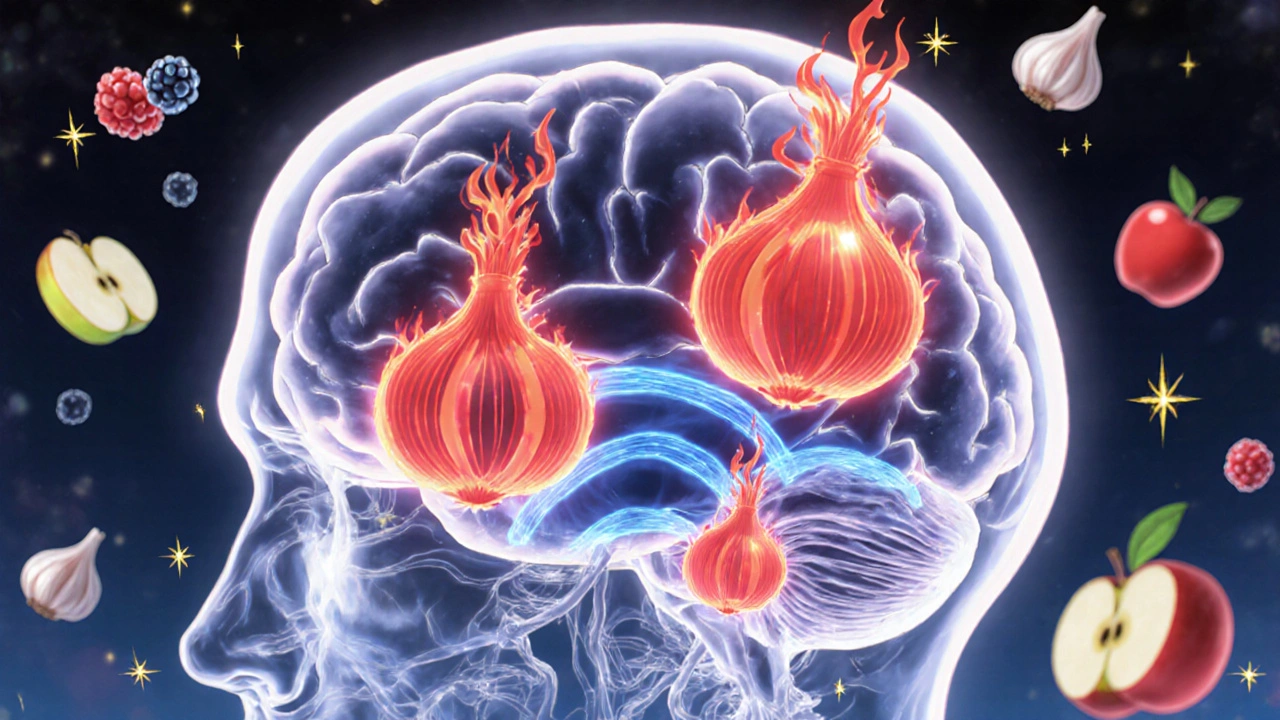
Who should avoid onion extract?
Most healthy adults can use onion extract safely. But there are exceptions.
- People with onion allergies should avoid it entirely-even topical exposure can trigger reactions.
- Those with acid reflux or IBS may find raw onions or high-dose extracts worsen symptoms. Cooked onions or lower doses may be tolerated.
- If you’re on blood thinners like warfarin, talk to your doctor. Quercetin has mild anticoagulant effects, and while unlikely to cause problems at normal doses, caution is wise.
- Pregnant or breastfeeding women should skip supplements. There’s not enough safety data yet, though eating onions as food is fine.
There’s no evidence that onion extract causes liver damage or hormonal disruption-unlike some herbal supplements. But if you’re already on antidepressants, don’t stop them. Onion extract isn’t a substitute. Think of it as a sidekick, not the hero.
Real results: What do users report?
In a small 2024 survey of 187 people using onion extract supplements for at least 8 weeks, 63% reported feeling less overwhelmed by daily stress. About 51% noticed improved sleep quality. Only 12% said they felt no difference.
One participant, a 42-year-old teacher with generalized anxiety, wrote: "I didn’t expect to feel anything from something so simple. But after three weeks, I stopped checking my phone every five minutes. My chest didn’t feel so tight before meetings. It didn’t cure me-but it made the quiet moments feel quieter, and that helped."
These aren’t clinical trial results, but they suggest a real, tangible effect for many people. The biggest factor? Consistency. People who skipped doses or used it sporadically didn’t report benefits.
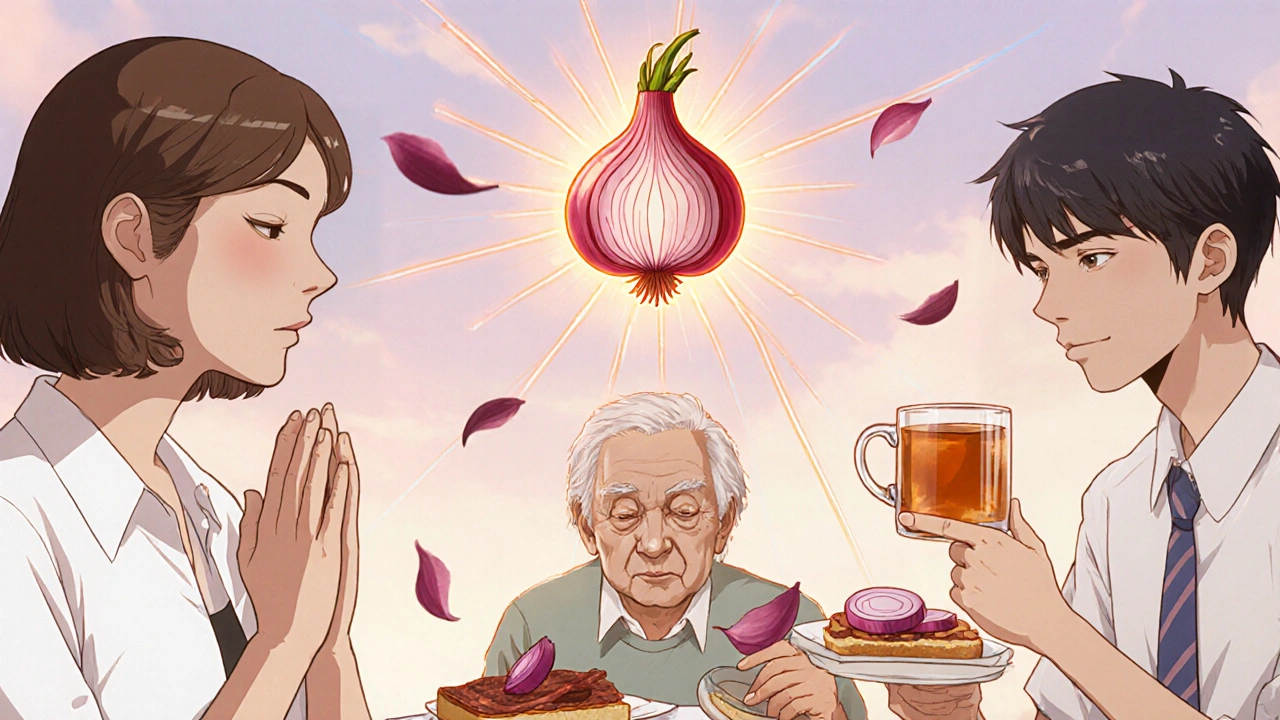
What science still doesn’t know
While the early signs are promising, major gaps remain. No large-scale human trials have tested onion extract specifically for depression. Most data comes from animal studies or lab tests on isolated compounds. We don’t yet know:
- The ideal daily dose for humans
- How long benefits last after stopping
- Whether it works better for anxiety than depression-or vice versa
- How it interacts with different types of antidepressants
Researchers at the University of California are launching a 12-week randomized trial in early 2026 to test 400 mg of onion extract daily in adults with mild to moderate depression. Results won’t be out until late 2026, but the study design is rigorous and includes brain imaging to track changes in inflammation markers.
For now, the evidence is preliminary but compelling. Onion extract isn’t a cure. But it’s one of the few natural substances that hits multiple biological pathways tied to mood-without heavy side effects or dangerous interactions.
Bottom line: Is it worth trying?
If you’re looking for a gentle, science-backed way to support your mental health alongside therapy or medication, onion extract is worth considering. It’s affordable, widely available, and safe for most people. Start with food-add red onions to your meals daily. If you don’t notice a shift after 6 weeks, try a supplement.
Don’t expect miracles. But if you’ve tried everything else and still feel stuck, sometimes the simplest things-like an onion-can make a quiet, steady difference.
Can onion extract replace antidepressants?
No. Onion extract is not a replacement for prescribed antidepressants or therapy. It may support mood and reduce stress, but it doesn’t have the same potency or proven effectiveness as FDA-approved medications. Never stop taking prescribed medication without talking to your doctor.
How long does it take for onion extract to work?
Most people start noticing subtle changes-like better sleep or less irritability-after 4 to 6 weeks of daily use. Full effects typically take 8 to 12 weeks. Unlike fast-acting drugs, onion extract works by gradually reducing inflammation and balancing stress hormones.
Is raw onion better than cooked for mental health?
Raw red onions contain slightly more quercetin, but cooking only reduces it by about 10-15%. If you can’t tolerate raw onions, cooked ones still provide meaningful benefits. The key is consistency-not how you prepare them.
Can children or teens use onion extract?
There’s no research on onion extract supplements for children or teens. Eating onions as part of a balanced diet is safe and healthy. Supplements are not recommended for anyone under 18 without medical supervision.
Where can I buy reliable onion extract supplements?
Look for brands that specify "red onion peel extract" and list quercetin content (15-25% is standard). Choose third-party tested products with certifications from USP, NSF, or ConsumerLab. Avoid products with artificial fillers or unlisted ingredients.
If you’re curious about other food-based mood supports, consider adding garlic, berries, or dark leafy greens to your diet. They work on similar pathways and can complement onion extract. Mental health isn’t about one superfood-it’s about consistent, small choices that add up.


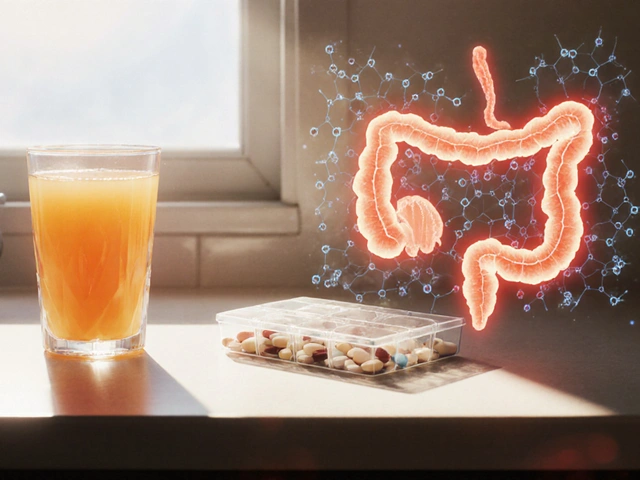
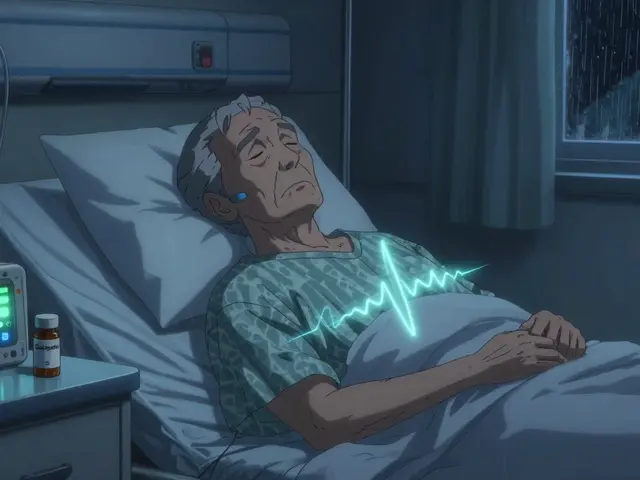
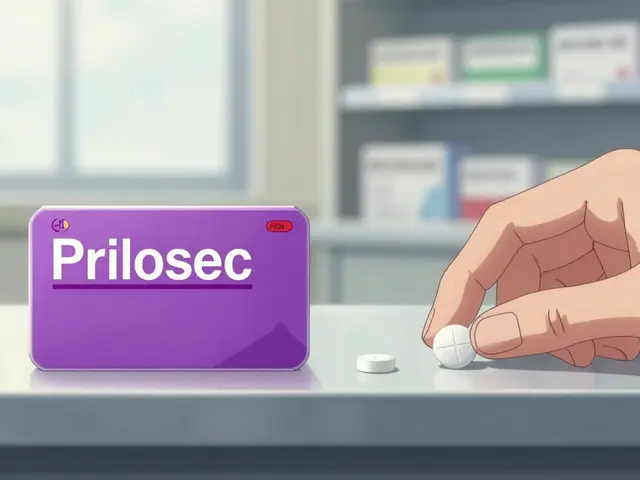
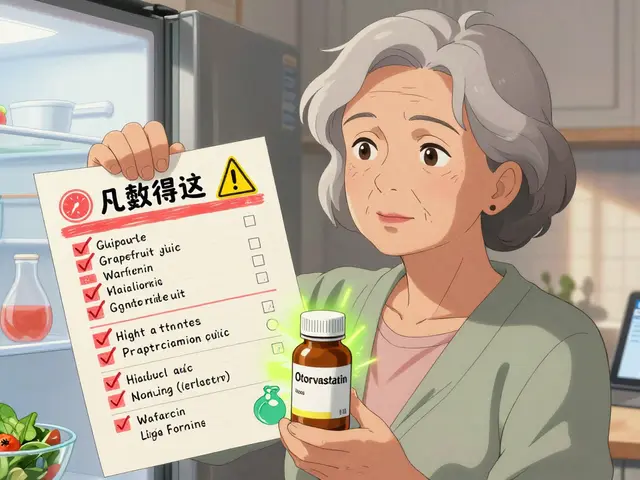
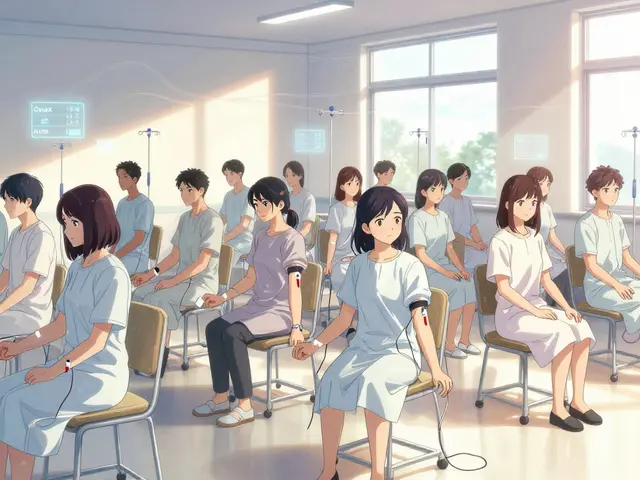
Write a comment
Your email address will be restricted to us